Science Ticker
A roundup of research and breaking news
Sign up for our newsletter
We summarize the week's scientific breakthroughs every Thursday.
-
 Animals
AnimalsWhy bats crash into windows
Smooth, vertical surfaces may be blind spots for bats and cause some animals to face-plant, study suggests.
-
 Particle Physics
Particle PhysicsThe results from a slew of experiments are in: Dark matter remains elusive
Scientists continue the search for particles that make up the universe’s missing matter.
-
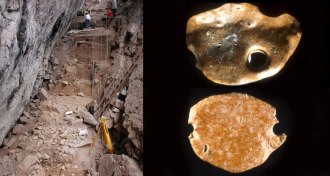 Archaeology
ArchaeologyPeople may have lived in Brazil more than 20,000 years ago
Stone Age humans left behind clues of their presence at a remote Brazilian rock shelter.
By Bruce Bower -
 Anthropology
AnthropologySpiritual convictions and group identities inspire terrorist acts, study finds
Sacred values and becoming one with comrades fuels terrorist acts, a report finds.
By Bruce Bower -
 Planetary Science
Planetary ScienceRings of Uranus reveal secrets of the planet’s moon Cressida
By studying variations in the rings of Uranus, researchers have determined the mass and density of the planet’s moon Cressida.
-
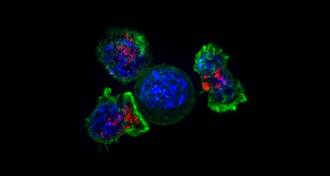 Health & Medicine
Health & MedicineFDA approves gene therapy to treat a rare cancer
The Food and Drug Administration has approved Kymriah to treat a rare cancer. It’s the first-ever gene therapy approved in the United States.
-
 Archaeology
ArchaeologyAncient mud documents the legacy of Rome’s lead pipes
Researchers used lead levels in Rome’s ancient harbors to track lead pipe use and urbanization.
-
 Astronomy
AstronomyHere’s what the Science News family did for the eclipse
On August 21, 2017, the path of a total solar eclipse went coast to coast across the United States. Here are our dispatches.
-
 Science & Society
Science & SocietyToday is the day! A last-minute guide for watching the Great American Eclipse
You’ve probably heard this already, but there’s a total solar eclipse traversing the United States today, August 21. Here’s what you need to know.
By Kate Travis -
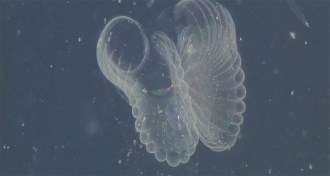 Animals
AnimalsGiant larvaceans could be ferrying ocean plastic to the seafloor
Giant larvaceans could mistakenly capture microplastics, in addition to food, in their mucus houses and transfer them to the seafloor in their feces.
-
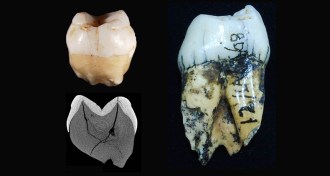 Anthropology
AnthropologyAncient people arrived in Sumatra’s rainforests more than 60,000 years ago
Humans reached Indonesia not long after leaving Africa.
By Bruce Bower -
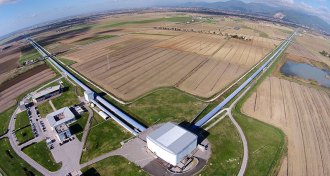 Physics
PhysicsVirgo detector joins LIGO in the search for gravitational waves
The Virgo detector near Pisa, Italy, has begun searching for subtle ripples in the fabric of spacetime.